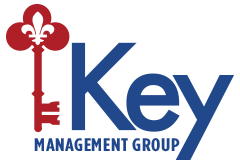Hotel Management Glossary
There are currently 42 Glossary Items in this directory beginning with the letter O.
Objective
A measurable end which an organization must achieve in order to effectively carry out its mission.
Occupancy
A commonly used measure of hotel performance; occupancy is calculated by dividing the number of rooms sold by the number of rooms available and multiplying by 100.
Occupancy Percentage
An occupancy ratio which indicates the proportion of rooms sold to rooms available for sale during a period of time.
Occupancy Rate
The ratio of guest rooms sold (including comps) to guest rooms available for sale in a given time period. Always expressed as a percentage, the formula for occupancy rate is Total Rooms Sold/Total Rooms Available = Occupancy Percent (%).
Occupancy Ratio
A measurement of success of the hotel in selling rooms. Typical occupancy ratios include average daily rate, average rate per guest, multiple occupancy statistics, and occupancy statistics.
Occupancy Report
A report prepared each night by a front desk agent which lists rooms occupied that night and indicates those guests expected to check out the following day.
Occupancy Tax
Money paid by a hotel to a local taxing authority. The room revenue generated by the hotel determines the amount paid. This tax is also known, in some areas, as the "bed" tax. For example, "In our city, the occupancy tax is 2 percent."
Off-the-Shelf
a. : Standardized, not customized computer software.b. : A term relating to a generic product (such as a training resource) that is developed for general industry use rather than specifically developed for a unique property. c.: Prepare for training.
Offer
An element in a legal contract that indicates what one entity is willing to do and what that entity expects in return.
On-Change
A room status term indicating that the guest has departed, but the room has not yet been cleaned and readied for sale.
On-Line
A condition in which a piece of hardware is capable of interacting directly with the central processing unit.
On-the-Job Training
(OJT) Learning activities designed to enhance the skills of current employees. OJT programs are typically offered by management with the intent of improving guest service and employee performance at the hotel. There is generally no charge to the employee for the training.
Opaque Model
A system in which the room buyer does not know the name of the hotel they have chosen until after they have committed to the purchase price of the room.
Operating Costs
Costs directly incurred to generate revenue that vary by the amount of revenue (business volume) and that are usually within control of the applicable manager.
Operations
Primary activities of the value chain that refer to transforming inputs into the final product.
Opt-Out
To make e-mails stop by expressing the desire that unsolicited e-mails are unwelcome e-mails.
Organization Chart
A schematic representation of the relationships between positions within an organization, showing where each position fits into the overall organization and illustrating the divisions of responsibility and lines of authority.
Organizational Ethics
A value system that has been widely adopted by members of an organization; often used interchangeably with the term organizational values.
Orientation
The process of providing basic information about the hotel which must be known by all of its employees.
OSHA
Short for the Occupational Safety and Health Administration (US). A federal agency established in 1970 that is responsible for developing and enforcing regulations related to assuring safe and healthful working conditions.
Other Revenue
Revenue derived from the sale of hotel products and services that are not classified as rooms, food, or beverages.
Out-of-Balance
A term used to describe the state when the totals of debit amounts and credit amounts for a set of accounts are not equal.
Out-of-Order
A room status term indicating that the room cannot be assigned to a guest. A room may be out-of-order for maintenance, refurbishing, extensive cleaning, or other reasons.
Outsourcing
Contracting with another firm to provide goods or services that were previously supplied from within the company; similar to subcontracting
Over
A situation in which cashiers have more money in their cash drawer than the official sales records indicate. Thus, a cashier with 110 more in the cash drawer than the sales record indicates is said to be 110 "over."
Overage
An imbalance that occurs when the total of cash and checks in a cash register drawer is greater than the initial bank plus net cash receipts.
Overbooking
A situation in which the hotel has more guest reservations for rooms than it has rooms available to lodge those guests. Sometimes referred to as "oversold."
Overbuilt
The condition that exists when there are too many hotel guest rooms available for the number of travelers wanting to rent them. See also proliferation.
Overflow Facility
A property selected to receive central reservation requests after room availabilities in chain properties within a geographic region have been exhausted.
Overtime
The number of hours of work after which an employee must receive a premium pay rate. This premium rate is generally one and one-half times the basic hourly rate.

